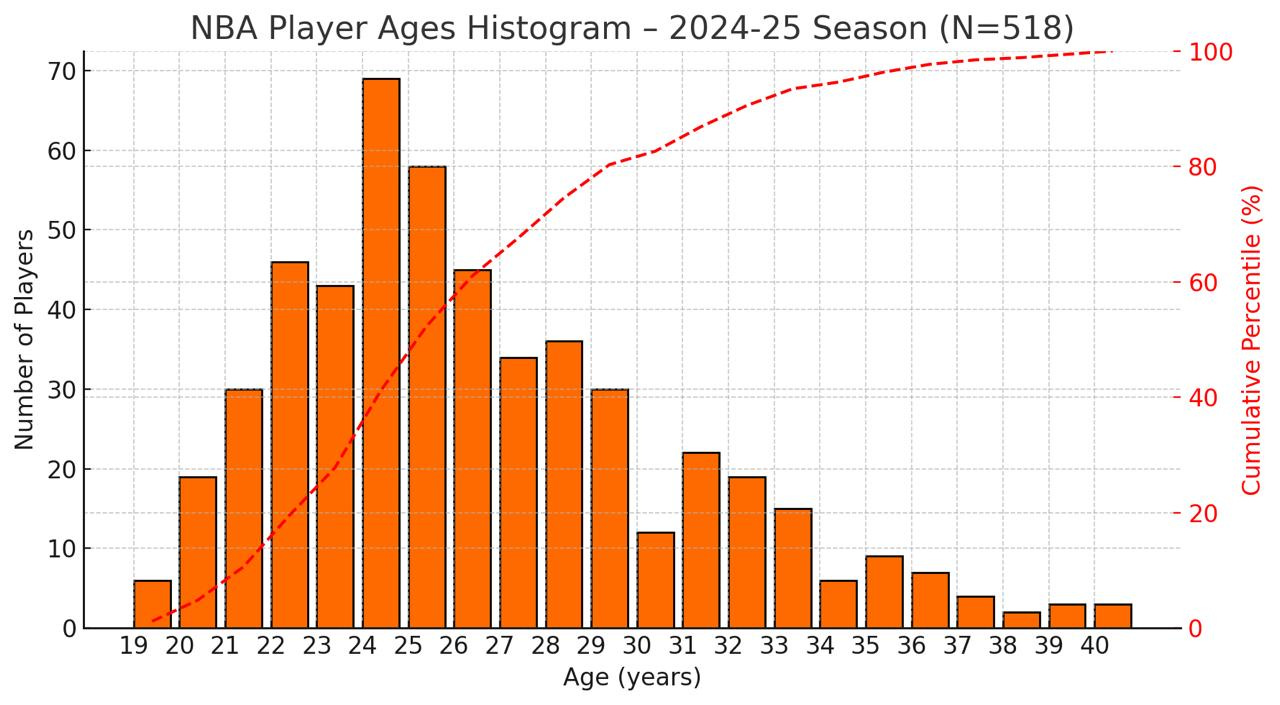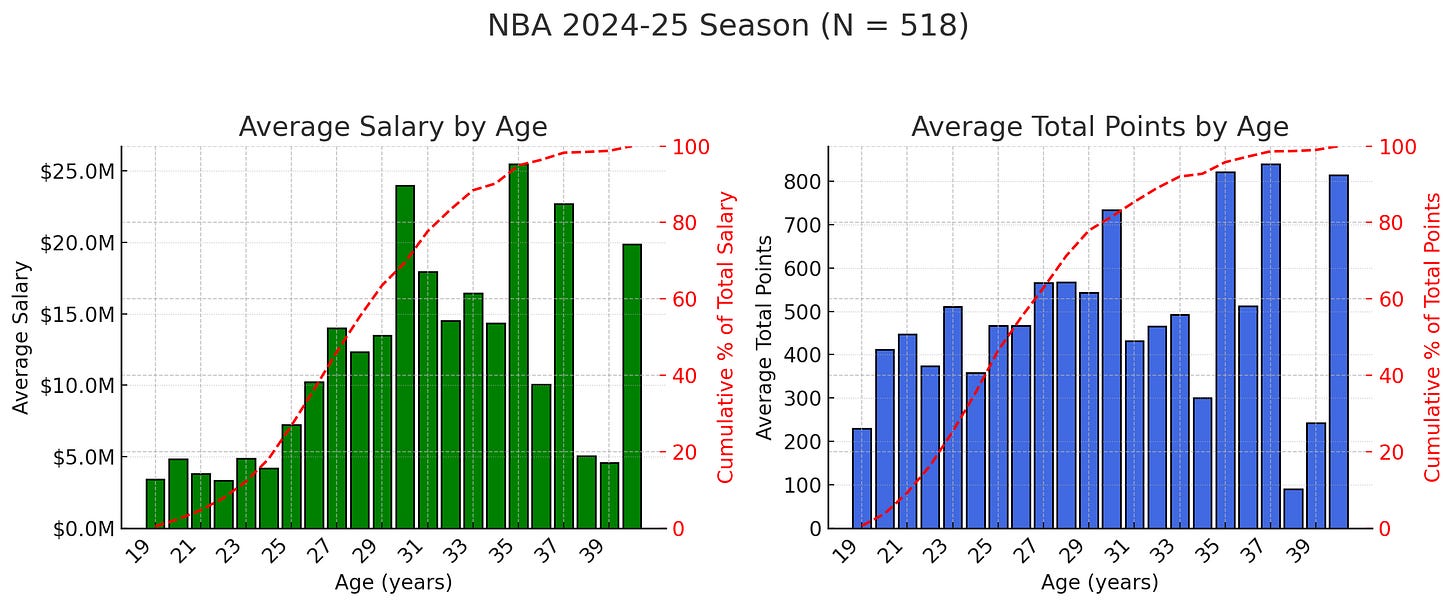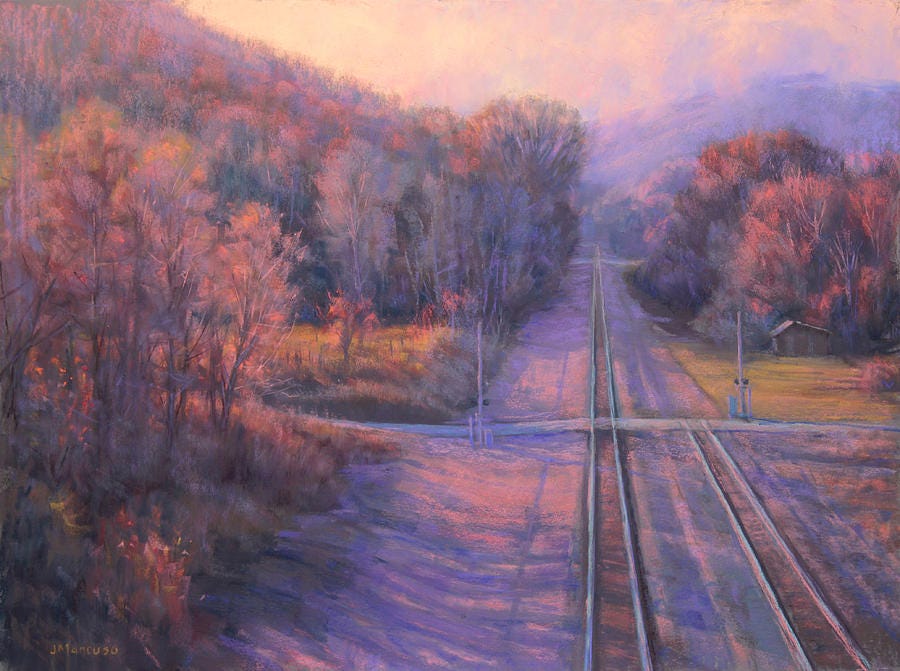It’s tough to get out of bed to do roadwork at 5am when you’ve been sleeping in silk pajamas.
- Marvin Hagler
I’ve been coasting for the past four months. It’s probably been my first extended break in over six years of grinding. My days that were once spent sitting in front of screens for 16 hours a day are now spent playing pickup basketball, learning history and science, writing blog posts, having conversations with other traders, seeing friends, going on dates, and most importantly sleeping nine hours a night.
On the surface it sounds idyllic yet underneath I feel uncertainty.
The reluctance to do the 5am roadwork is easy to rationalize. Managing risk is stressful, takes up most of my days to do properly, and it fucks with my sleep. I wear silk pajamas in the sense that money has stopped being a concern. The freedom feels weightless. I answer to nobody, follow my curiosity, and do whatever I want when I feel like it.
Yet inexplicably I know I will return to trading. I’m just not sure when.
I had a conversation with another trader who mentioned that discretionary trading was similar to playing in the NBA, both in its cutthroat competitiveness and in the intensity of commitment required. The analogy stuck with me. I started digging into NBA career data to observe how others have navigated this silk pajamas effect I was feeling.
The NBA is competitive. 518 players played in the league in the 2024-2025 season 1, representing 0.00001% of all people in the world who play basketball two or more times a month.
The NBA is cutthroat. There are only 450 contracts available (30 teams * 15 roster spots). The median salary is 3.5 million dollars. Securing a contract for just one season could mean life changing money. The churn is real. 17% of the league doesn’t make it to the roster the next season.
The NBA is young. Half of all players are 25 and younger when athleticism, explosiveness, lateral quickness, endurance are at its peak.
In the NBA it’s hard to be old. Less than one fifth of the players are 30 or older. 5% of players in the league are 35 or older.
Young players are the foot soldiers of the NBA. They produce a fair amount of points, have the energy to do the dirty work the team needs, and most importantly, are underpaid relative to everyone else. Average salaries 2x when players turn 27 and 4x at 30.

Most players don’t survive very long. Over a third don’t make it past two years. The average person lasts five years. The odds of making it to the ten year mark is less than 25%. This curve is starkly contrasted to most modern jobs, with the median teacher career for example lasting over 25 years. 2
Many stars that dominated when I was in college are out of the league at 33 years old. Loss of athleticism and injuries are factors but I think it’s downstream of the silk pajamas effect.
Once the wealth and fame pile up, the grind feels optional. You can coast on talent for a while, but eventually the league catches up. Athleticism fades, the diet slips, weight creeps in, and injuries become inevitable. The denial of your reduced athleticism prevents you from reinventing your game in the offseason. The superstar ego keeps you from accepting a reduced role or doing dirty work on the bench that secures you a roster spot.
NBA history is full of generational talent that flopped because they never pushed past the first peak.
As DeMar DeRozan said, the league has plenty of dudes who don’t love basketball. They just love the perks.
If you’re still suiting up past 35, it’s not about the paycheck. Even the “poorest” veteran is pushing nine figures. Yet they still roll out of silk sheets at 5 am, lift, practice, hop on flights for 82 games, undergo intense recovery protocols, and attend film sessions.
For the love for the game.
Let’s pull it back to trading and complete the analogy.
Discretionary trading is just as competitive, cutthroat, ruthless, and filled with infinite waves of ambitious young fellas powered by raw intellectual athleticism chasing for that one life changing season.
Grinding 16 hour shifts in a 24/7 market and bolting awake for alerts is the desk bound version of an 82 game schedule with back-to-back road games and redeye flights to road games. Powering through all nighters wrecks my health and burns me out the same way reckless jumping and poor recovery wreck NBA knees.
If I want to play the game sustainably, I need to switch from raw athleticism to veteran craft. Focusing on trades that require careful planning and cleverness rather than just being at the right place at the right time. Relying more on finesse and resource management instead of powering through all nighters and trying to dunk on everyone. Shifting from solo hero ball to developing my team, mentoring young talent to take over athletic duties, and cultivating culture. Guarding sleep, recovery, and morale by only pulling the trigger on high percentage shots. I know what I need to do to make the roadwork easier to wake up for.
Spiritually I feel like a 30 year old NBA player winning my first championship ring. I have gone from scarcity to never having to worry about money ever again. My father grew up malnourished on the rice paddies of the Chinese countryside. Scarcity was the main source of stress and conflict in my household environment growing up. Being able to retire my parents has been one of the most fulfilling achievements in my life so far.
Now I stand at a crossroads. Do I keep playing or do I step away at the top of my career?
I know I love the game. Competition has coursed through my veins since childhood, and trading remains the highest leverage, fastest iteration game on the planet for someone with my skillset. I still feel a primal thrill when I sharpen my tools, read the flows of the herd, and close in for the kill with my tribe.
Yet lately the dopamine balance has been off. The wins don’t feel as good as they used to, the losses feel worse, and the game gets harder every season. I still am figuring out what is left for me to achieve in this arena. And that’s making it hard to get out of bed to do the roadwork.
There’s something special about that first championship ring. It swapped anxieties around scarcity for an immovable self-confidence in my abilities. It blew open my sense of what’s possible. In chasing it I built deep relationships with people that I now view as brothers. In a few seasons I gained the power to reshape not only my own life but also the futures of my family and friends.
When I look at the careers of NBA legends, I see that their sentimental favorites are never their first titles. The trophies they value most are always their later rings after years of scar tissue and refinement, when raw athleticism has been traded for craft, self-mastery, and legacy.
I do not yet know what my own next summit looks like, but their examples tells me there are higher more fulfilling peaks to climb.
For now I will stay in the off season, resting, learning, and letting hunger gather again until I feel ready to return.
As always thanks for reading :)













man, this was a dope article to read. Thank you for sharing your perspective, many similarities including my family is from China as well. We see the same silk pj's effect with someone like Conor McGregor. Thankfully I've found internal values & pursuits to keep my love for the game. Been in off-season/ recovery since April. Enjoy your time off bro.
loved the analogies